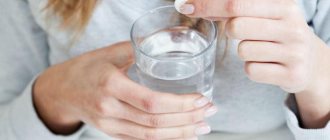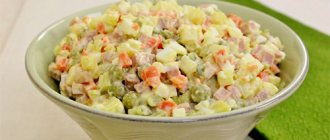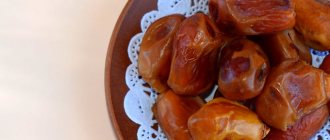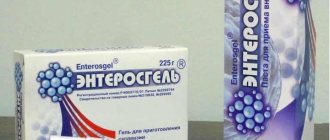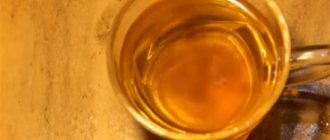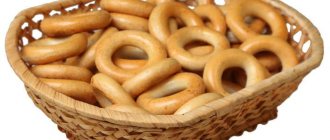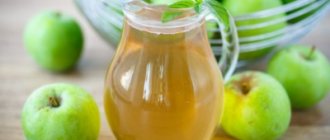The period of breastfeeding in a woman’s life is one of the most important and responsible. But the popular opinion that at this time a woman can gain a lot of weight or change emotionally has nothing to do with it. The health of the baby and mother comes first. The completeness of satisfaction of the baby’s physiological needs depends on how correctly she organizes her nutrition and drinking regime. So what can a nursing mother drink? Is it enough to drink to quench thirst, or to forcefully saturate the body with moisture to increase lactation?
How much liquid is needed
During mature lactation, the mammary glands produce up to 1.5 liters of milk per day. To get this volume, you need to drink or consume with food, in addition to the usual amount, about 1-1.5 liters of liquid.
These numbers are arbitrary, so it is best for a nursing mother to focus on the feeling of thirst. In the first weeks after childbirth, it is felt especially acutely, as it occurs under the influence of the hormone oxytocin.
There is an opinion that it is necessary to limit the amount of fluid consumed after childbirth, avoiding a sudden flow of milk and breast engorgement. But this can lead to milk becoming more viscous and its outflow being disrupted. In addition, feeling very thirsty will cause nervous stress and block oxytocin, which will also interfere with lactation. Lactation consultants give the opposite advice: Have a cup of water next to you while you feed, so you can take a couple of sips whenever you feel like it.
When drinking liquid, the main thing is not to go to extremes. You should not limit yourself in drinking, but there is no need to forcefully drink teas, milk, juices and compotes. Excessive excess fluid does not stimulate lactation, but creates additional stress on the kidneys.
Admission rules
How to drink mineral water correctly while breastfeeding:
When choosing a product, consult your doctor;- try the drink for the first time according to the rules for introducing a new product;
- adhere to recommendations for the volume of daily servings;
- drink mineral water in the first half of the day, unless another regimen is prescribed by your doctor;
- distribute the daily volume into several doses, rather than drink at one time;
- Monitor your own well-being and note changes in the baby’s behavior.
How to try it for the first time?
Like any food product, mineral water should be administered according to the rules. This will help avoid side effects for the nursing mother and baby.
Basic recommendations:
- It is advisable to try the drink no earlier than a month after giving birth;
- introduce only one product per day;
- for the first time, it is enough to drink from a few sips to half a glass of water;
- it is advisable to introduce mineral water in the first half of the day;
- record a new drink in your breastfeeding diary;
- closely monitor the condition of the baby and your own well-being;
- record any changes in a diary;
- increase the dosage gradually;
- If you feel unwell, exclude the drink from your diet.
If you have chronic diseases, consult a therapist or specialist.
Subsequent consumption
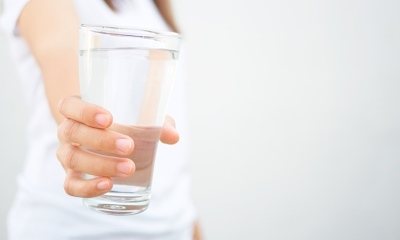
It is advisable to drink no more than half a glass of mineral water for the first few days, unless otherwise prescribed by your doctor.
The maximum daily volume of table mineral water is 2 tbsp. , for treatment and prophylaxis – 1 tbsp.
If the drink contains an increased amount of active ingredients, it is recommended to drink in courses of 2-4 weeks, then take a break.
Daily consumption of any mineral water for a long period of time is undesirable.
Useful for lactation
Milk is produced from blood plasma, so in principle, any healthy drink has the same effect on lactation. So it is not necessary to follow folk recipes and drink remedies like tea with condensed milk, especially if you do not like this drink. Condensed milk contains a lot of calories, and excess sugar will negatively affect the figure and condition of the mother’s teeth. But you can increase milk flow if you drink warm drinks. Just drink what you like: tea, compote or even regular boiled water. Any warm liquid will increase the flow into the mammary glands.
If special means are needed to stimulate the production of breast milk, for example during a lactation crisis, prepare decoctions of dill, fennel, cumin, and anise seeds. Drink in small portions 15-30 minutes before feeding.
Nursing mother: what to drink
Note that milk is formed from blood plasma, therefore, no matter what liquid you drink, it will not greatly affect the composition and quantity of milk in any special way. Any drinks - be it tea with or without milk, a decoction of herbs or just water - are transformed in the intestines, the water and its components are absorbed separately. It is often believed that to increase the fat content of milk you need to drink tea with condensed milk, and young mothers obediently pour liters of the sweet drink into themselves. However, this amount of calories (and condensed milk contains both fat and sugar) will not benefit the mother’s figure. Milk, even condensed milk, is a potential allergen for the baby. Therefore, you should not be overzealous with this drink. If you love it, limit yourself to 1-2 glasses a day. If you don't like him, don't force yourself. It has been noticed that the intake of warm drinks increases the flow of milk, but this is equally true for any liquid - boiled water, herbal or regular tea, compote. Therefore, choose according to your taste what you like best.
It is important to take into account the quality of ordinary drinking water - it should be bottled, filtered or boiled drinking water. You should not drink tap water - it is of very poor quality and must be filtered and boiled before drinking.
Many women love coffee, green tea or fruit drinks, freshly squeezed juices, and kvass is held in high esteem in the summer. These drinks are quite acceptable, you just need to know when to stop and monitor your baby’s individual reactions to them.
In addition, when choosing a drink, mom needs to remember about its biological properties. Coffee and strong tea stimulate the nervous system, so you need to take them in the morning, before noon, then your baby will not be excited by caffeine in the evening and will not become capricious. Kvass and grape juice can cause fermentation in the intestines, so if a child has colic or unstable stools, such drinks should be treated very carefully.
Fresh juices will be useful, but remember, in concentrated form they irritate the stomach, and bright fruits can cause an allergic reaction in the baby. Therefore, they should be diluted by half with water. And if you are trying juices for the first time, you need to drink very little and monitor the reaction of the baby’s skin and stool during the day.
Milk
Milk should be consumed only if it does not cause discomfort to mother and baby. Avoid drinking whole milk, which can cause colic and bloating. But you can drink a glass of baked milk a day, for example, if you really like it, and also make porridge and soups from it.
Fermented milk products are much more suitable for lactation - kefir, yogurt, bifido-kefir, yogurts without additives. Try not to buy low-fat products; choose those packages that indicate 2.5% fat content.
What drinks should you not drink while breastfeeding?
There is a category of drinks that are not inherently harmful, but for one reason or another are not recommended for consumption by nursing mothers:
- Coffee - contains caffeine, which causes indigestion, excessive agitation, and sleep disturbances in the baby.
- Black tea also contains caffeine, which causes a negative reaction in the child.
- Herbal mint tea is allowed for consumption only if the mother plans to stop breastfeeding, as it reduces lactation.
- Herbal tea with valerian is a good sedative, but is not recommended during breastfeeding, as it can cause constipation, lethargy, or, conversely, hyperexcitability in the baby.
- Carbonated drinks, including water - artificial carbonation will lead to bloating, flatulence and colic in the baby.
- Kvass - in addition to the fact that it is also a carbonated drink, kvass contains alcohol, which has a detrimental effect on the baby’s fragile body.
- Juices from citrus fruits have a high level of allergenicity, as well as a lot of acid, which, when taking such freshly squeezed juice, has a negative effect on the mother’s stomach.
- Berry juices - berries, even those growing in your region and picked in season, are considered quite allergenic and are not recommended for consumption in the first months of lactation.
Juices
Almost all juices (except for elite varieties) on sale are reconstituted concentrates with a high sugar content. They can quench your thirst and provide a pleasant taste sensation, but nothing more. In a breastfed baby, such drinks can cause an allergic reaction.
Only freshly squeezed juices are suitable for a nursing mother. Citrus, tomato, and grape juices should be drunk with caution; these are potential allergens.
The most suitable drinks for breastfeeding are green apple juice, pumpkin juice, carrot juice (in limited quantities), and birch juice.
How much fluid should you drink while breastfeeding?
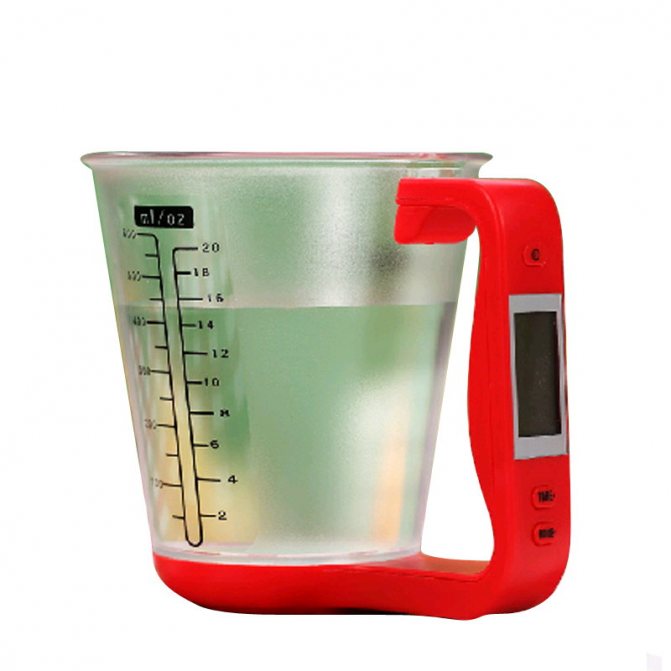
The daily intake for an adult is at least 1.5 liters. A nursing mother should double this figure, taking into account the loss of water through breast milk. In summer, this figure increases further.
A lack of fluid for a nursing mother can be dangerous - the body, not receiving enough water necessary for basic life processes, slowly begins to “pull” it from the cells. This process leads to tissue destruction, premature aging of the body and malfunction of organs.
At the same time, you should not force yourself to drink water. In an adult, thermoregulation processes work smoothly, so as soon as the body begins to feel a lack of fluid, the process of thirst begins.
At the same time, the best way to quench it is plain water without gas. It is strictly not recommended to try to drink water containing sugar. This ingredient has the opposite property - it causes thirst. This is actively used by producers of sweet drinks. The more a person drinks such water, the more he wants to drink. During lactation, sugar also creates an additional burden on the baby’s body.
Caffeine
Caffeine increases the excitability of the nervous system in both mother and baby. If you cannot imagine your day without a cup of aromatic tea or coffee, then you can still consume them in small quantities in a diluted form. After all, a calm and happy mother is the best thing a baby needs. But still, do not forget to monitor your child’s reaction to the product.
To reduce the potential harm from tea and coffee, drink the drink immediately after feeding. This way, by the next feeding, the amount of caffeine will be reduced to a minimum. Remember that the maximum amount of caffeine is contained in green tea; it is better for a nursing mother to avoid it.
Compotes, fruit drinks, herbal tea
Drinks made from fruits, dried fruits, with the addition of nettle, fennel, and anise are the best things that can be included in a nursing mother’s diet, apart from clean drinking water. Fruit drinks and compotes replenish fluid deficiency and contain vitamins and minerals.
Compote can be prepared from apples, pears, and peaches. Suitable berries include cranberries, blackberries, currants, cherries, and gooseberries. But introduce them into your diet with caution and drink in moderation – 1-2 glasses a day.
Dried fruits can be added to compote according to indications. So it is better to eat prunes for constipation. Dried apricots and raisins also stimulate the gastrointestinal tract. But all these products can cause fermentation in the intestines and pain in the child.
Prohibited
A nursing mother's menu should not contain drinks high in dyes, preservatives, or sugar. This applies to sugary sodas, sweetened fruit drinks, and dairy products with fruit additives.
Alcohol is absolutely prohibited . Ethyl alcohol, even in small quantities, quickly penetrates the blood and breast milk, causing poisoning in the child and inhibiting his physical and mental development.
Using our recommendations, you can easily determine what a nursing mother can drink and what she should avoid. Remember that the quality of drinks, like the quality of food, affects the health of both mother and child.
